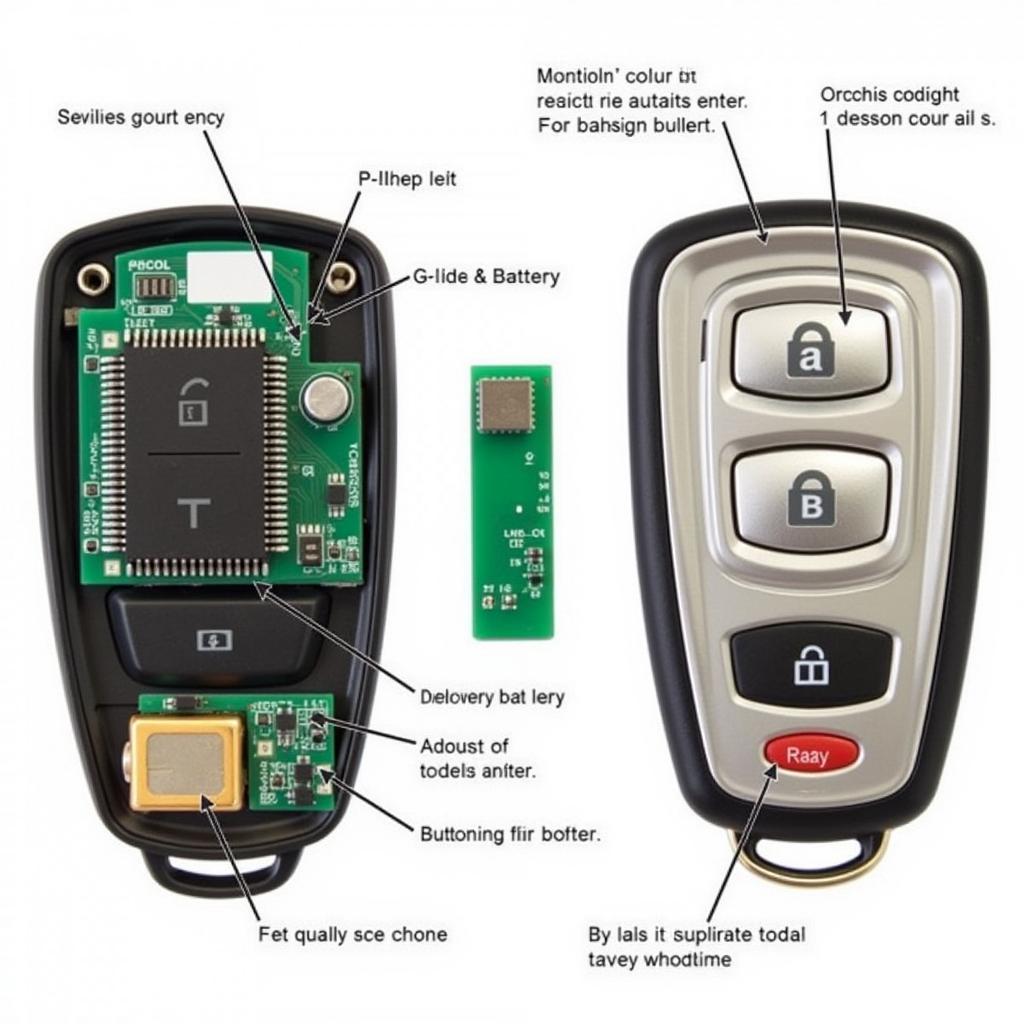A brake light warning on your 2003 Toyota Avalon dashboard is a clear signal that something isn’t right with your braking system. Ignoring this warning could compromise your safety and the safety of others on the road. While it might seem like a minor inconvenience, understanding the potential causes and knowing how to address them can save you from costly repairs and potentially dangerous situations.
Common Causes of a 2003 Toyota Avalon Brake Light Warning
Several culprits could be triggering that persistent brake light warning on your 2003 Avalon. Here are some of the most common:
- Burnt Out Brake Light Bulbs: This is the most common and often the easiest issue to fix. Brake light bulbs, like any light bulb, have a limited lifespan and will eventually burn out.
- Blown Fuse: Your Avalon’s brake lights operate on a dedicated fuse. If this fuse blows, your brake lights won’t function.
- Faulty Brake Light Switch: This switch, typically located near the brake pedal, signals your brake lights to illuminate when you press the pedal. A malfunctioning switch can lead to a continuous warning light.
- Worn Brake Pads: Many 2003 Avalons are equipped with a brake pad wear sensor. This sensor triggers the brake light warning when your brake pads are nearing the end of their life and need replacing.
- Low Brake Fluid: Brake fluid is essential for transmitting the force from your foot on the brake pedal to the actual brakes. A leak in the brake lines or a critically low fluid level can illuminate the warning light.
Troubleshooting the Brake Light Warning
Before heading to a mechanic, there are a few checks you can do yourself:
- Inspect the Brake Lights: Have a friend or family member press the brake pedal while you check that all three brake lights (two on each side and the center high-mounted light) are working.
- Check the Brake Fluid: Locate the brake fluid reservoir under the hood (refer to your owner’s manual for the exact location). Ensure the fluid level is between the “Min” and “Max” markings. If the fluid is low, carefully add the correct type of brake fluid recommended for your Avalon. Important: Do not drive the car if the brake fluid is significantly low, as this could indicate a leak in the system.
- Examine the Fuse Box: Your Avalon’s owner’s manual will identify the location of the fuse box and the specific fuse for the brake lights. Check the fuse for any signs of burning or damage. Replace the fuse if necessary.
When to Seek Professional Help
If your brake light warning persists after these checks, it’s crucial to seek professional assistance. Issues like a faulty brake light switch, worn brake pads, or a brake fluid leak require specialized tools and expertise to diagnose and repair.
“Ignoring a brake light warning is like ignoring a flashing red light,” says John Davis, a seasoned automotive electrician with over 20 years of experience. “It’s a safety risk you simply can’t afford to take.”
Remote Diagnostics and Software Solutions
Advancements in automotive technology have paved the way for remote diagnostics and software-based repairs. For certain brake light warning issues, connecting your 2003 Avalon to a specialized diagnostic tool can pinpoint the root cause more efficiently. In some cases, software updates or recalibration might be all that’s needed to resolve the problem.
Keeping Your Avalon Safe
Addressing a brake light warning promptly is essential for your safety and the well-being of your 2003 Toyota Avalon. Regular maintenance, including brake inspections, fluid checks, and timely replacement of worn parts, can prevent many brake-related issues and keep your Avalon running smoothly for years to come.

